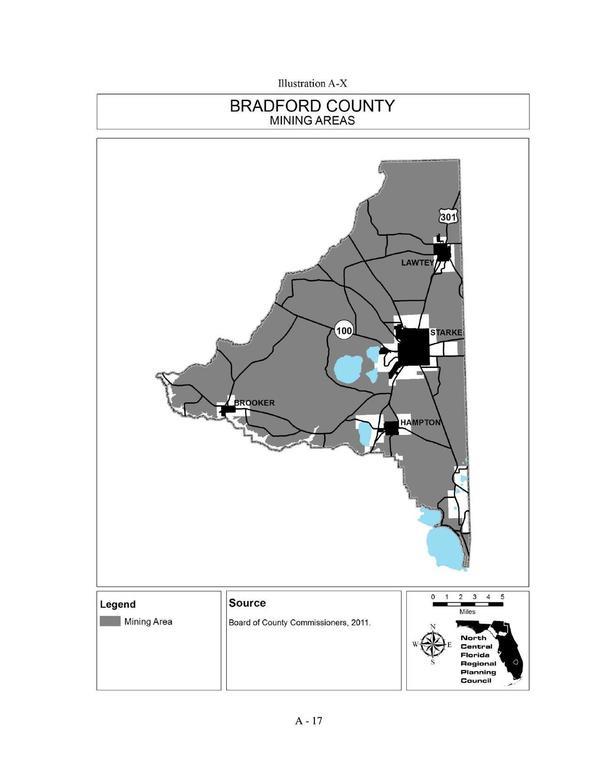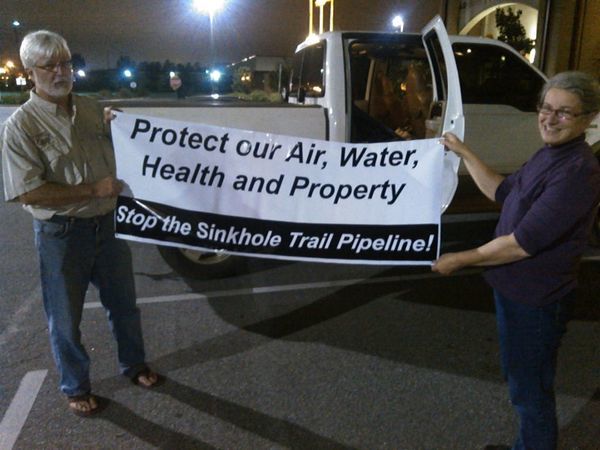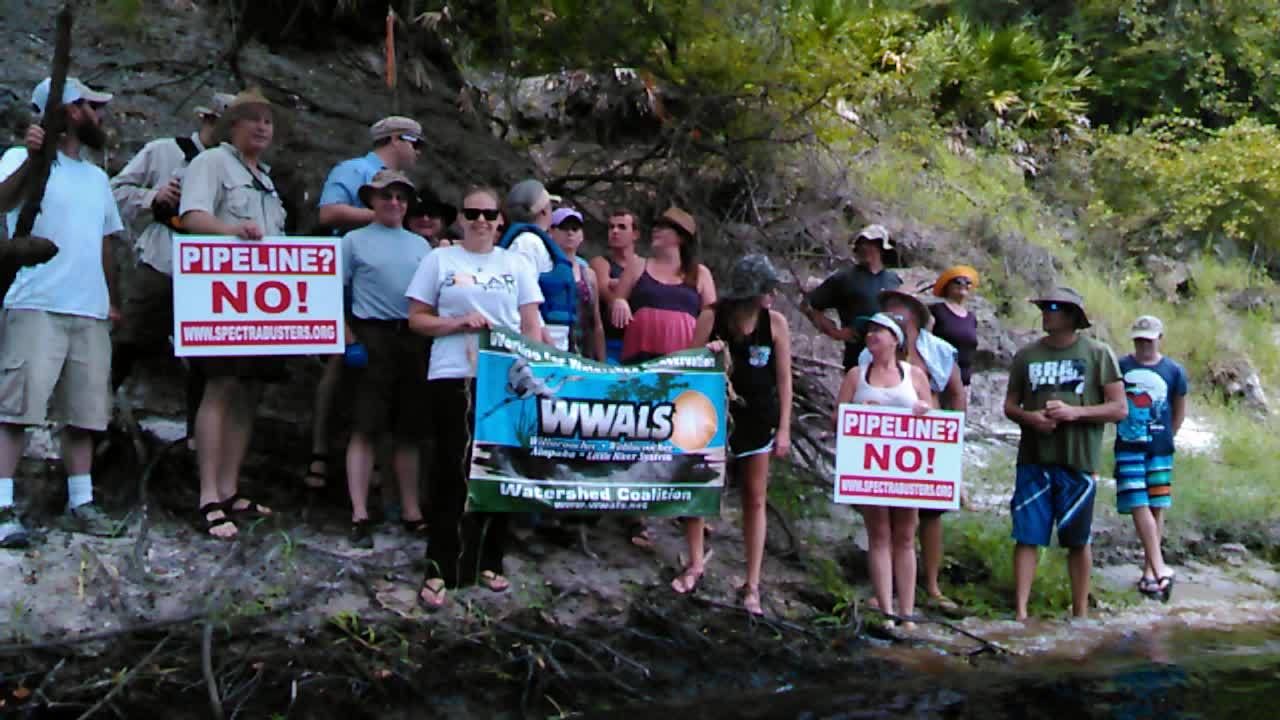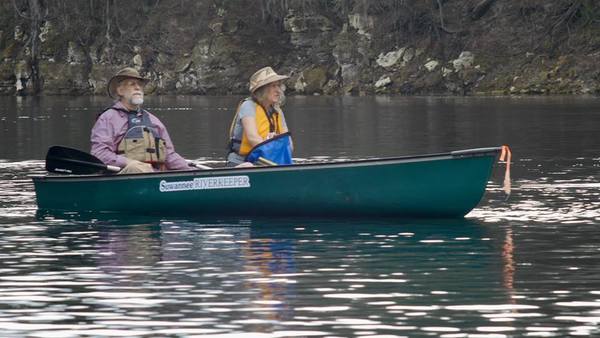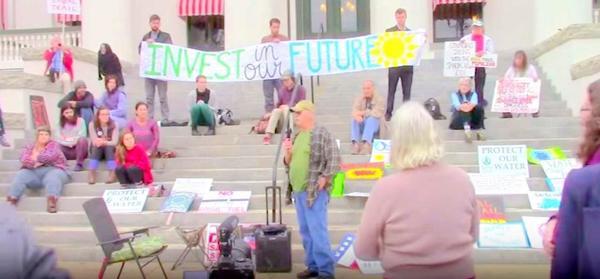Update 2017-08-29:
Fourth news roundup:
From pipelines to renewable energy and efficiency –Sierra Club 2017-08-29
Update 2017-08-24:
Third news roundup:
This is wind in our sails and could be the end of Sabal Trail
—Suwannee Riverkeeper in VDT 2017-08-24
OilPrice.com calls it “a critical decision yesterday,
that could jeopardize the future for pipeline projects across the country”;
pipeline companies could be “spooked” and
“…the court ruling raises the unsettling
possibility that the project may be forced to shut down —
after billions were spent putting it in into service.”
Other stories say this ‘huge’ win could also affect
the Atlantic Sunrise, Penneast, Atlantic Coast, and Rover Pipelines,
among others.

(L to R) Lea Fox, 4, Finn Ryder Purdy, 4, and Mason Dana, 7, of Lake
Worth, sit with gas pipeline protesters outside of Florida Power and
Light headquarters on Universe Boulevard in Juno Beach on October
14, 2016. The Sabal Trail Pipeline began supplying FPL’s plants in
June. Groups opposed the pipeline that will start in Alabama and
bring fracked gas through several counties in Florida’s springs and
wetlands. (Richard Graulich / The Palm Beach Post)
Sad for FPL, Duke, Spectra, and all the other pipeline-building
purveyors of fracked methane, maybe, but glad for all the
landowners whose land was taken, local citizens who don’t want
a 500+-mile IED next to their homes, schools, and waterways,
and all people who want clean sun and wind energy, not more polluting fossil fuels.
It’s good the industry press agrees with what I told the VDT:
“This is wind in our sails and could be the end of Sabal Trail.”
Here’s a news roundup, in addition to Continue reading →



